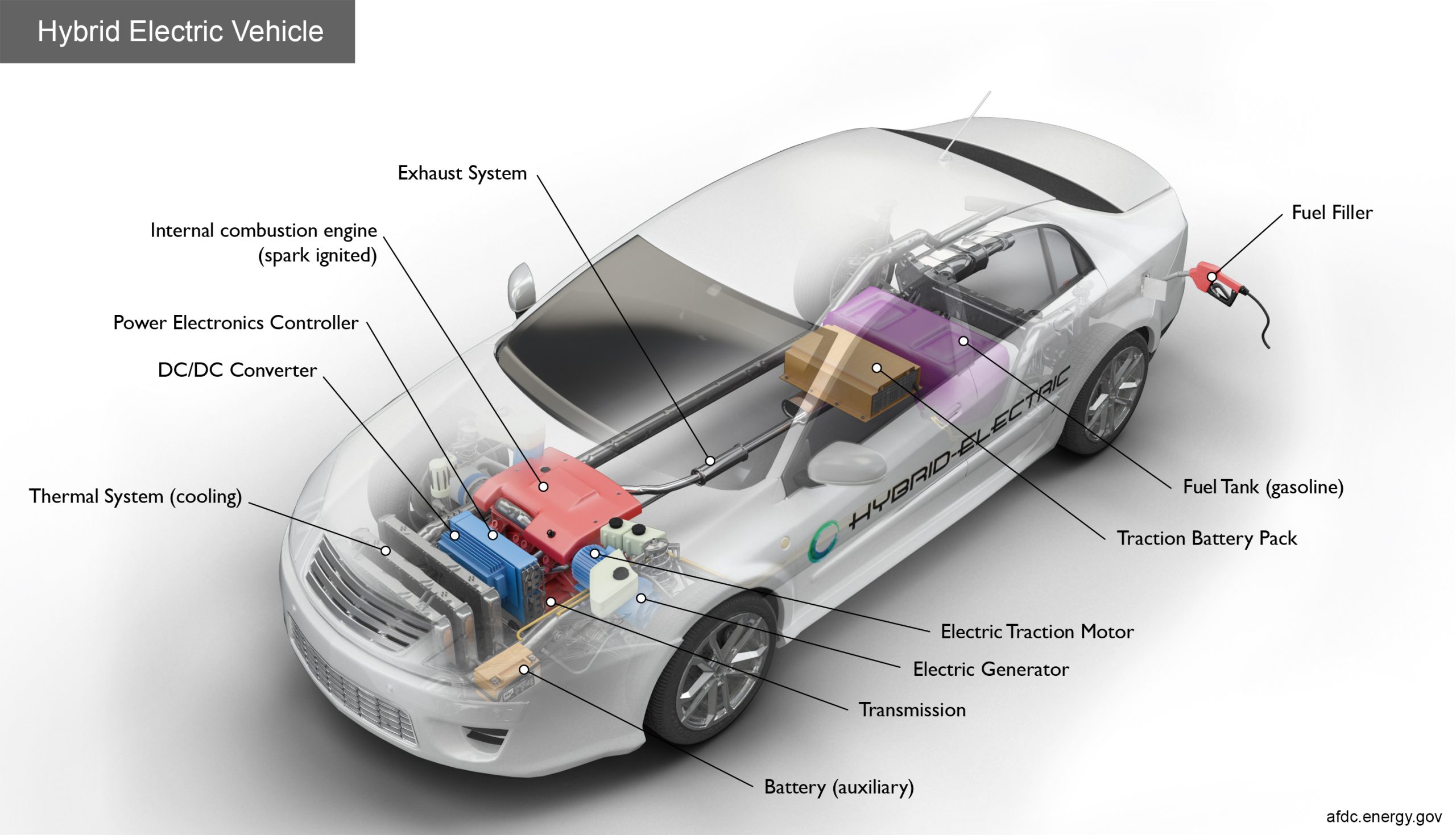What happens if your transmission goes out while driving?
Having your car’s transmission go out while you’re driving is a frightening experience. Your car will suddenly lose power, making it difficult or impossible to accelerate. This leaves you stranded until you can get help. Understanding what causes transmission failure and what to do when it happens can help you handle this emergency safely.
Table of Contents
What causes a transmission to fail?
There are several potential causes for a transmission failing while driving:
- Low transmission fluid – Transmissions require a specific amount of transmission fluid to operate properly. If the fluid is low, it can cause the transmission to overheat and fail.
- Leaking fluid – Transmission fluid leaks can cause low fluid levels leading to failure. The source of the leak needs to be repaired.
- Faulty solenoid – Electrical solenoids control gear shifting. If one fails, the transmission may not shift properly leading to failure.
Transmission failure can also occur due to normal wear and tear over the life of the vehicle. Problems are often preceded by warning signs before complete failure happens.
What are the signs of impending transmission failure?
Watch for these warning signs that may indicate impending transmission failure:
- Difficult or delayed shifting – Transmission hesitates or takes too long to go into gear.
- Gear slipping – Engine revs but car doesn’t accelerate as quickly as normal in a specific gear.
- Burning smell – Burnt transmission fluid smell indicates overheating issues.
If you notice any of these warning signs, have your transmission inspected and repaired by a professional right away to prevent complete failure.
What happens when your transmission fails while driving?
When the transmission fails completely while driving, several things may occur:
- Loss of power – The car will suddenly feel like it’s lost all power and won’t accelerate.
- Coasting – With no transmission power, the car will roll in the direction it was heading relying solely on momentum.
- Gear slipping – Any remaining gears may slip, causing revving but lack of power to wheels.
This loss of power makes it difficult or impossible to accelerate the vehicle. At best, you may be able to limp along or coast temporarily before the transmission fails completely. But you will not be able to drive normally or maintain higher speeds. You’ll need to pull over as soon as safely possible before you lose all momentum.
What should you do if your transmission fails while driving?
- Pull over – Carefully maneuver to the shoulder or side of the road out of traffic lanes as soon as possible.
Aside from moving to a safe location, your main priorities are to avoid traffic dangers from the disabled vehicle and get help to have it towed. Do not attempt to drive any further as doing so can completely ruin the transmission.
How to prevent transmission failure while driving
- Check transmission fluid – Regularly check levels and top up low fluid to avoid leaks or low levels.
- Change transmission fluid – New fluid helps keep components lubricated and cooled.
While unexpected transmission failure can still occur, your best chance for avoiding it is thorough preventive maintenance and cautious driving habits.
Can you drive with a bad transmission?
- Getting stranded – The transmission may completely fail, stalling the vehicle and leaving you stranded in an unsafe situation.
The repairs required for a severely damaged transmission often exceed the value of an older vehicle. Your best bet is to stop driving immediately and call for vehicle transportation to a repair shop.
How much does it cost to replace or repair a transmission?
Transmission repairs or replacements can be very expensive depending on the make, model and type of transmission. Here are some average estimated costs:
Repair costs for minor issues like fluid changes and leaks will be at the lower end of the price scale. But once hard parts like solenoids, converters or complete transmissions need replacement, costs can rapidly exceed $1,000 and may not be worth it on some older vehicles.
Factors that affect transmission repair and replacement costs
- Make and model – Luxury and performance brands are more expensive.
- Transmission type – Manual vs. automatic, number of gears, etc.
Signs you need transmission repair or replacement
- Difficulty shifting gears
Repairs are typically needed if you notice shifting delays, slipping, burning smells or abnormal sounds. If the transmission is totally unusable and damaged internally, a full replacement will be required.
How to diagnose transmission problems
- Note symptoms – Pay attention to any symptoms you notice while driving.
- Check fluid – Low, dirty or smelly fluid points to larger problems.
A transmission shop will utilize these various methods to diagnose where the problems originate within your transmission system. This informs them about what specific repairs need to be made.
When do you need a new vs. rebuilt transmission?
- Failed gears – Damaged, worn teeth prevent gears from meshing properly.
Rebuilds are only worth it on vehicles with lower miles that have developed limited internal damage. But extensive wear, broken parts or electrical issues will require complete new or remanufactured transmission units.
Can you repair a transmission without removing it?
- Fluid, filter changes
However, if internal hard parts like gears, bands, clutches or shafts need replacement, the transmission will have to be removed from the vehicle for disassembly. Some main reasons full removal is required include:
- Access to internal components
- Ability to disassemble case and inspect all parts
- Remove debris and flush contaminated fluid
So while some minor repairs can be made externally, any major rebuild or overhaul will require the transmission to be taken out of the vehicle.
Conclusion
A transmission failure while driving can be frightening and dangerous. But understanding the common causes, warning signs and smart actions to take can give you confidence to deal with this situation safely until repairs can be made. While costs for rebuilt or replacement transmissions can be high depending on the damage, they are necessary expenses to get your vehicle back on the road operating smoothly.
Posted on Published: July 24, 2023 – Last updated: October 14, 2023
Why Is My Car Losing Power When Accelerating?
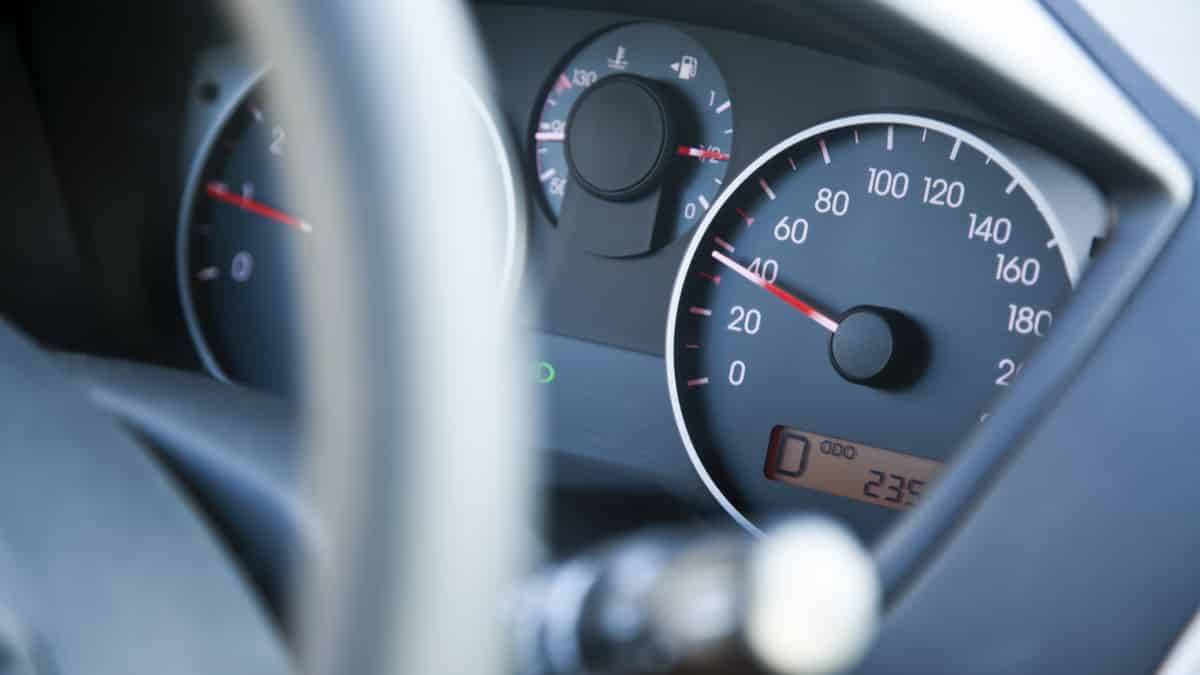
If you’ve been experiencing car trouble and your car seems to be losing power when accelerating, don’t worry – you’re not alone. This is a problem that many car owners face, but there are several causes that can lead to it.
In this post, we’ll take a look at some of the most common causes of this issue and what you can do to fix it. So, if your car has been giving you problems lately, keep reading for more information.
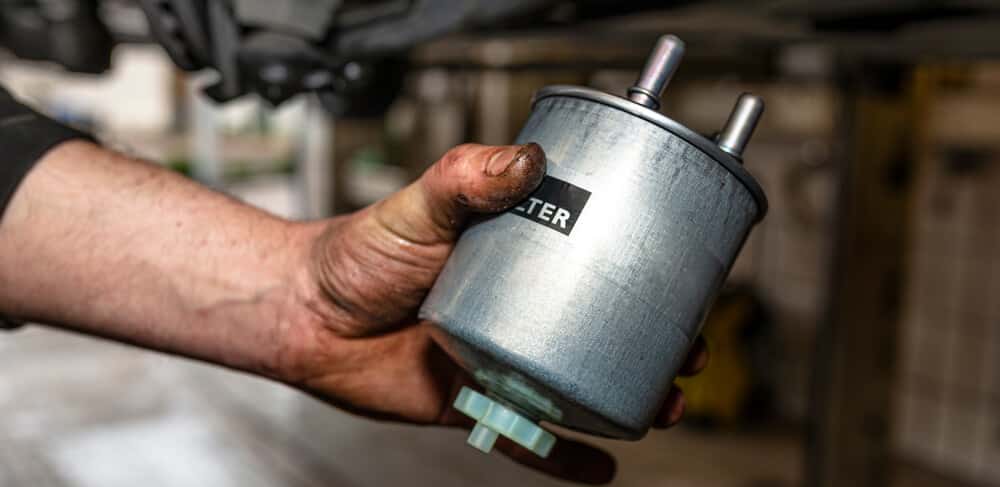
A fuel filter has the responsibility of filtering the fuel before it goes into the engine and combustion chamber. If the fuel filter gets clogged and the fuel does not reach the engine chamber in the right quantity, the engine will not perform at its optimum level.
You will feel as if you are losing power while you accelerate. So, when this happens, the first thing you should do is check your fuel filter.
The fuel filter is located in the engine bay or near the fuel tank in your car’s trunk. If the fuel filter is clogged, you can get it changed by a mechanic who will charge you a very paltry sum.
2. Clogged/Dirty Air Filter (Both Diesel & Gas)
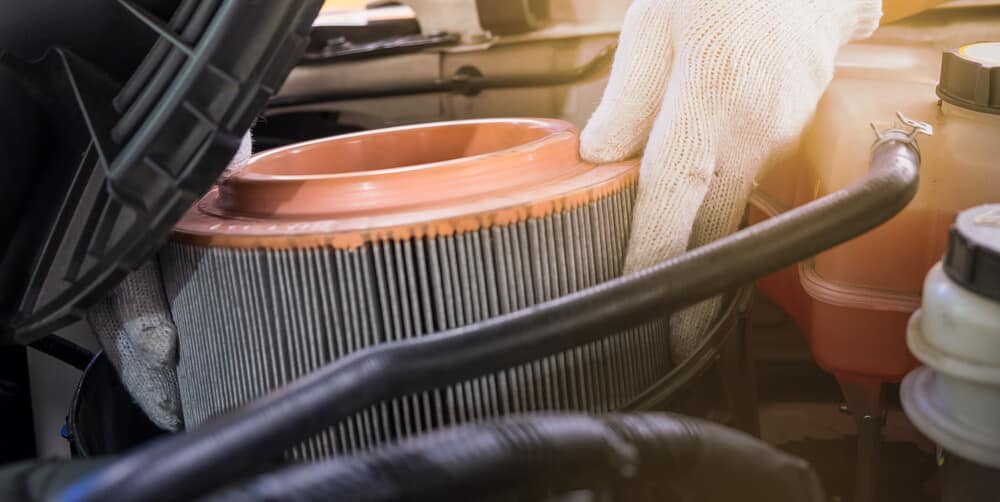
The engine needs clean air to function properly. Dust and other particles can damage the combustion chamber. Therefore, the air that goes into the system should always be clean. To ensure this, an air filter is placed right before the throttle body.
As soon as the throttle opens, the air is sucked in, and it passes through the dedicated air filter, which cleanses the air of dust and other harmful particles. The air filter goes bad after a few thousand miles, so it is best if you get it changed every time you go for an oil change.
3. Clogged Catalytic Converter or Particle Filter
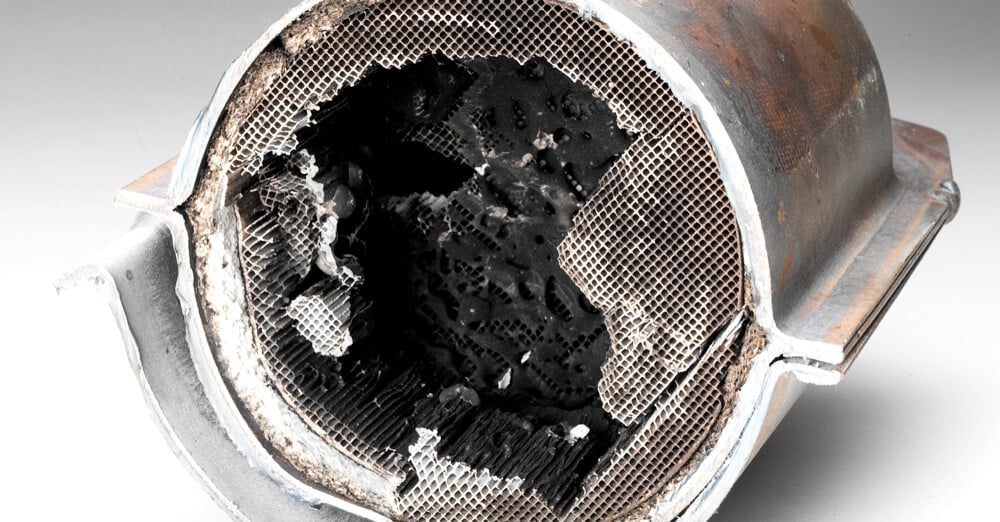
The exhaust removes all the harmful and unnecessary gases from the engine. The sooner the exhaust excretes these gases, the sooner the engine can restart combustion.
Therefore, if the car can excrete gases faster than it produces them, the car runs fast and smoothly.
However, if there is any obstacle in the way like a clogged catalytic converter or a clogged exhaust, then your engine loses power.
4. MAF Sensor Malfunction
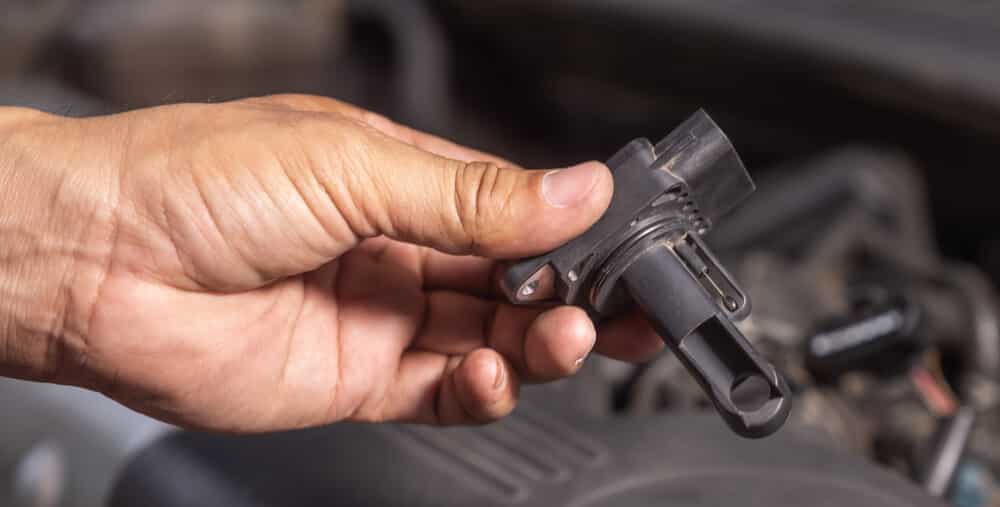
The Mass Airflow Sensor (MAF) measures the amount of air the car needs to accelerate. Once it gets that measurement, it sends this information to the ECU, which notifies the throttle to open accordingly.
If the MAF is faulty and not measuring the airflow properly, you could experience a serious loss in power. Sensors can get worn out due to heat and dust. Regularly cleaning them can help improve their function.
5. Oxygen Sensor Malfunction (Gas engines)
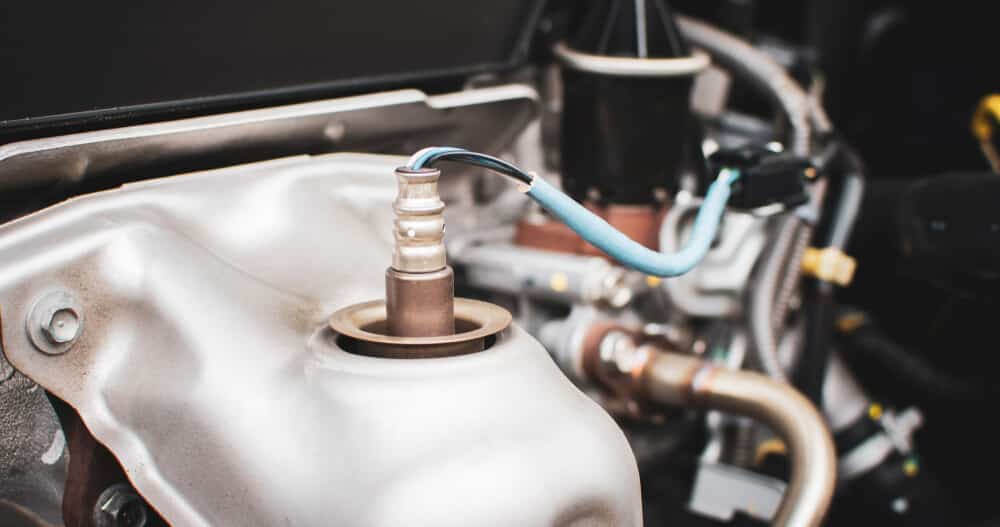
The MAF senses the amount of air entering the engine, and the oxygen sensor measures the gases that exit the engine. It is therefore located in the exhaust pipe. If the MAF readings match with the oxygen sensor readings, then this means your car is in perfect running condition.
The oxygen sensor also affects the fuel injection system, so it’s necessary for it to function properly for your car to run smoothly.
If the oxygen sensor fails, it can cause a lean or rich condition in the engine, which will cause the engine to lose power when accelerating.
6. Faulty Fuel Injectors (Both Diesel & Gas)
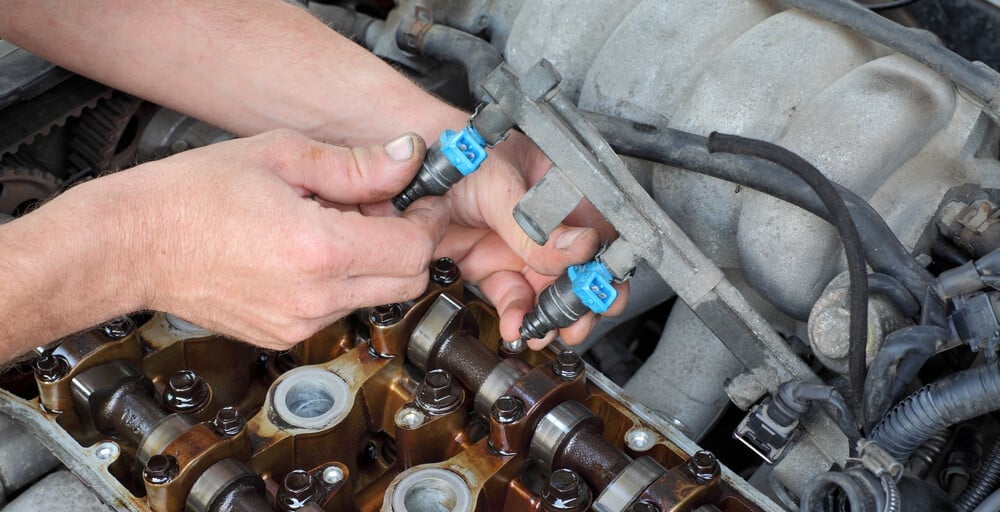
Fuel injectors introduce fuel into the combustion chamber. They do this by sending in fuel at high-pressure, much like a spray. They need to spray the precise amount of fuel into the chamber for combustion to happen.
If there is even a slight miscalculation, the combustion cycle can get disrupted, resulting in loss of power and, in the worst-case scenario, broken cams or pistons.
7. Fuel Pump (Gas Engines)
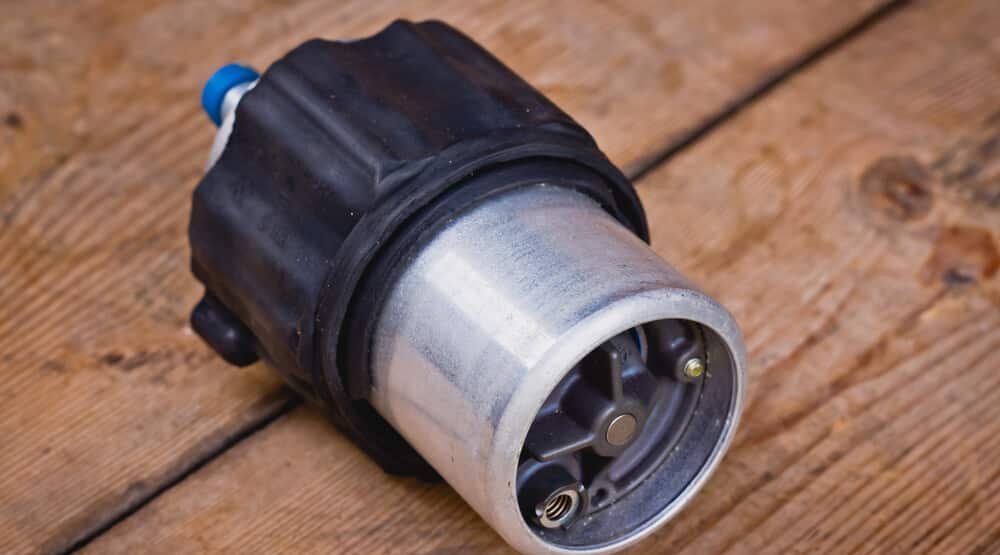
The fuel pump delivers fuel from the fuel tank to the engine. The fuel pump has to be powerful enough to be able to send the fuel at high pressure. If the pressure is low, the fuel injectors will not be able to spray the correct amount of fuel into the combustion chamber, resulting in a loss of power.
A faulty fuel pump will not pose problems at low speeds, but you might be left wanting when you are looking for quick acceleration. Fuel pumps usually have a long life, so checking the fuel pump on your car shouldn’t be your first action.
8. Worn Spark Plugs (Gas Engines)
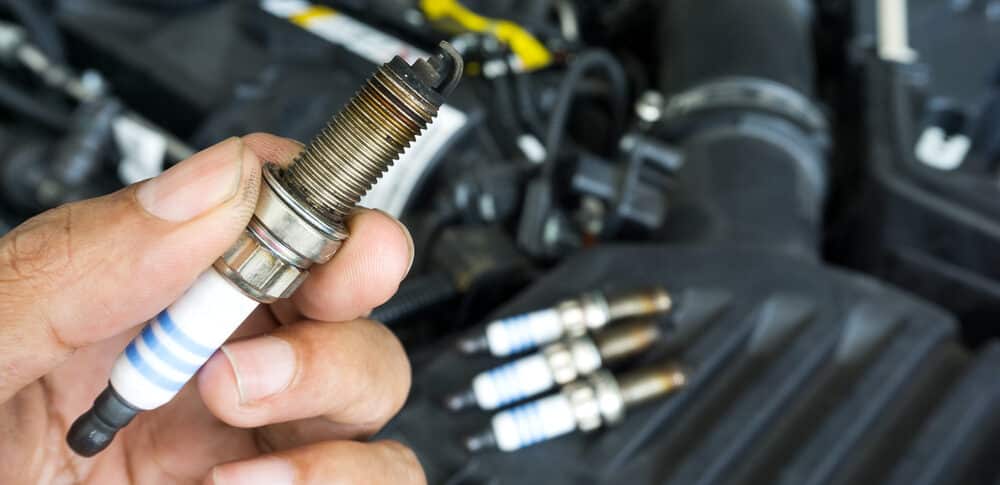
The spark plugs are another part of the engine that can cause problems with the engine’s power. They create the spark that causes explosions inside the combustion chamber. Without them, your car won’t even run.
If you are losing power, bad spark plugs could be a problem in some rare scenarios. Mostly you will notice worn spark plugs when your car is misfiring.
If your car engine doesn’t sound like usual, there is a chance that a spark plug is worn out and the car is running on one cylinder less than usual.
9. Poor Cylinder Compression (Both Diesel & Gas)
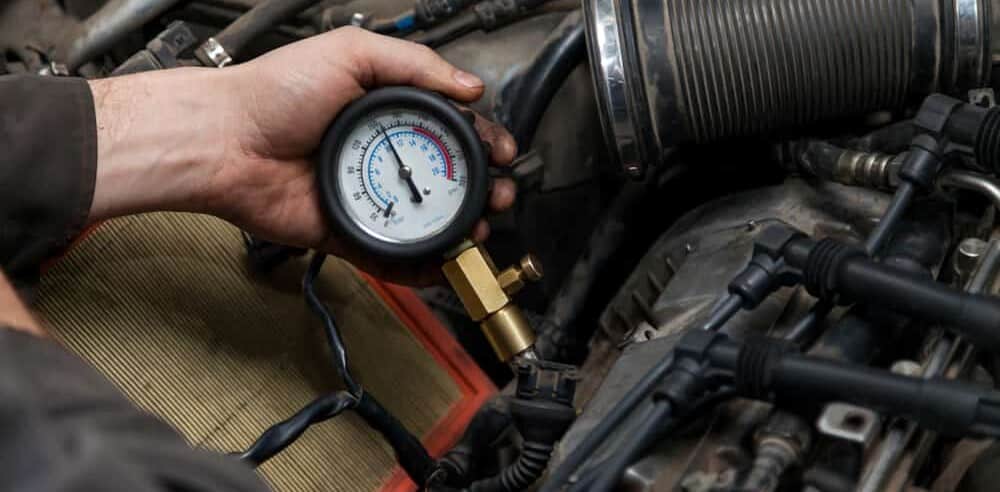
The cylinders in an engine have to be sealed tight so they can contain the explosions happening inside them. The car works on this basic principle. If the compression rate is high, then all the power from the explosion is being used to drive the pistons. However, if there is a leak, the compression rate drops.
In easier terms, this means that the cylinder cannot compress the explosion, and the power is not completely transferred to the wheels. This can lead directly to a loss of power while accelerating.
10. Faulty Turbocharger / Boost pipe leak (Both Diesel & Petrol)
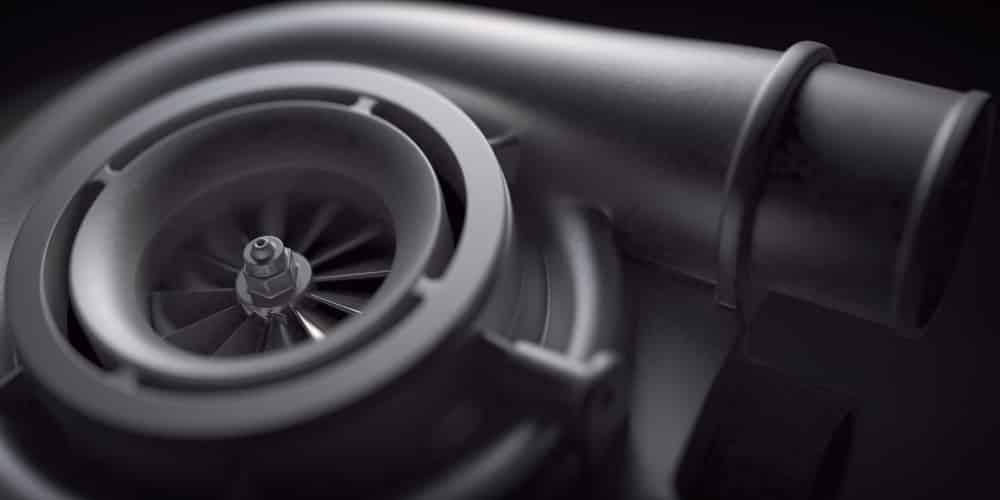
If your car is equipped with a turbocharger, your turbocharger is likely damaged. The turbocharger gives the engine a lot of extra horsepowers, and without it, your car will feel like a tractor.
An even more likely scenario is that a turbo boost pipe came loose, so the turbocharger will not increase the turbo pressure. This will cause a serious drop in the engine’s performance and cause the turbocharger to break.
Can bad spark plugs cause power loss?
Yes. Bad spark plugs can cause power loss. When the spark plugs aren’t firing properly, it can cause the engine to lose power and run inefficiently. So if you’re experiencing a loss of power, it’s worth checking the condition of your spark plugs to see if they might be the culprit.
How do I check if my fuel filter is clogged?
There are a few different ways to check if your fuel filter is clogged. One way is to perform a visual inspection of the fuel filter. If the gasoline inside the fuel filter appears dirty or clogged, then it is likely that the filter is clogged and needs to be replaced.
Another way to check if the fuel filter is clogged is to check the fuel pressure. If the fuel pressure is lower than normal, this may be an indication that the fuel filter is clogged.
Does cleaning a MAF sensor work?
Yes. Buildup of dirt and gunk on the sensor can cause it to malfunction, which in turn causes the car’s engine to run poorly and the engine to accelerate slowly. By cleaning the MAF sensor, you’re essentially removing all that built-up gunk and allowing the sensor to function properly again.
Can a dirty air filter cause reduced engine power?
Yes, a dirty air filter can cause reduced engine power. A dirty air filter restricts the amount of air that can flow into the engine which will cause a loss of power. It is recommended that you change your air filter after your vehicle’s service schedule.
There are many potential causes of a car losing power when accelerating. It could be something as simple as a clogged fuel filter or air filter, or it could be something more serious like a fuel supply problem.
The best way to start diagnosing a car that is losing power when accelerating is by checking the trouble codes in the engine control module with an OBD scanner.
You do also want to look for technical service bulletins for your vehicle. For example, Honda, Jeep, and Ram vehicles have power loss investigations and recalls.
If your car has this problem, but you don’t have the knowledge to fix it yourself, take it to a qualified mechanic and have them diagnose the problem as soon as possible. With proper diagnosis and repair, you should be able to get your car back on the road and running smoothly again.
- Car Shakes When Accelerating? Causes & How to Fix it
- Car Jerking When Accelerating? (Here’s How To Fix it)
- Knocking Sound When Accelerating – Causes and Fixes
https://www.restonyc.com/what-happens-if-your-transmission-goes-out-while-driving/https://mechanicbase.com/driving/car-losing-power-when-accelerating/


